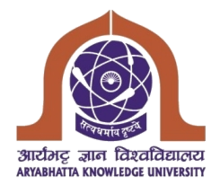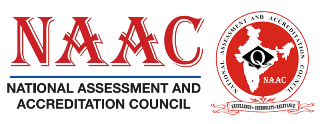- Introduction
The Socio-Economically Disadvantaged Group (SEDG) Cell is established to support students from financially weaker sections, marginalized communities (SC/ST/OBC), minority groups, and persons with disabilities. It ensures equal access to education, scholarships, skill development, and other necessary support for their academic and personal growth.
- Objectives of the SEDG Cell:
- To identify students belonging to socio-economically disadvantaged backgrounds.
- To provide financial aid assistance (scholarships, fee concessions, government schemes).
- To conduct academic support programs (remedial classes, mentoring).
- To ensure inclusive campus infrastructure (barrier-free facilities, assistive technology).
- To organize career guidance, soft skills training, and employment workshops.
- To redress grievances related to discrimination or exclusion.
- Composition of the SEDG Cell
- Dr. Kumar Mritunjay Rakesh,Principal (Chairman)
- Mr. Ajay Kumar Singh,Assistant Professor (Member)
- Rekha Kumari,Assistant Professor (member)
- Prashant Kumar,Office Staff (Member)
- Santosh Kumar, Accountant (Member)
- Nidhi Kumari, Student Session 2024-26 (Member)
- Jyoti Kumari, Student Session 2024-26 (Member)
- Dr. Ramakant Pandey,Samanvay Foundation,Muzaffarpur (Member)
- Key Functions of the SEDG Cell:
- Financial Assistance & Scholarships
- Help students apply for government, private, and institutional scholarships.
- Guide students on education loans and fee waivers.
5-Academic & Mentorship Support:
- Organize remedial classes for students who need additional academic help.
- Arrange peer mentoring and faculty guidance programs.
6-Infrastructure & Accessibility Improvements:
- Ensure ramps, special restrooms, and digital learning aids for students with disabilities.
- Provide library and internet access for students lacking personal resources.
7-Skill Development & Career Guidance:
- Conduct soft skills training, resume building, and job placement programs.
- Arrange internships, workshops, and industry exposure sessions.
8-Awareness & Sensitization Programs:
- Organize seminars on social justice, financial literacy, and mental well-being.
- Celebrate inclusive cultural events to encourage diversity and representation.
9-Grievance Redressal:
- Address cases of economic discrimination, exclusion, or unfair treatment.
- Maintain a confidential reporting mechanism for complaints.
10- Government Schemes & Legal Framework:
- The SEDG Cell helps students access benefits from:Post-Matric Scholarship for SC/ST/OBC Students.
- Minority Welfare Schemes (e.g., Maulana Azad Scholarship).
- Education Loan Schemes by Government Banks.
- Rights of Persons with Disabilities Act, 2016.
- UGC Guidelines on Inclusive Education
- Reporting & Monitoring:
- The Cell will submit an annual report on its activities and student support initiatives.
- Regular feedback sessions will be conducted to assess the impact of programs.
- Conclusion
The SEDG Cell plays a crucial role in ensuring that no student is left behind due to financial or social barriers. By providing financial aid, academic support, and career guidance, the college aims to create an inclusive and empowering learning environment for all.


